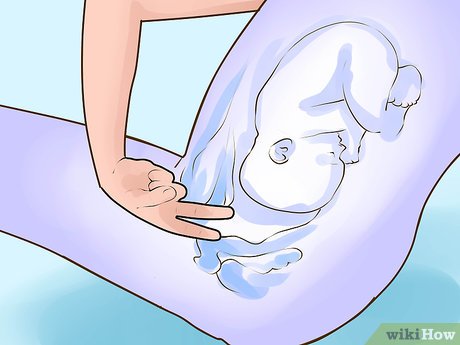Effective Ways to Eliminate Flies: Practical Tips for 2025

Smart Ways to Get Rid of Flies in Your House: Essential Tips for 2025
Importance of Fly Control in Homes
Understanding the necessity of indoor fly control is crucial for maintaining a comfortable living environment. Flies, while appearing harmless, can pose significant health risks by contaminating food and spreading diseases. Their rapid reproduction means that a few flies can quickly turn into an infestation. It's essential to deploy effective strategies, not only as a reaction but as a preventive measure.
Flies are attracted to various sources within our homes, such as garbage, food remnants, and organic waste. In 2025, innovative methods and a deeper understanding of fly behavior can significantly aid us in getting rid of flies effectively. In this article, we delve into various strategies that range from simple cleaning practices to advanced trap designs that can help keep your home fly-free.
Effective Cleaning Strategies to Reduce Fly Presence
A strong line of defense against flies begins with regular cleaning practices. Building on the notion that cleanliness is next to flylessness, implementing a systematic approach to cleaning can drastically reduce fly populations in your home.
Regular House Cleaning
Adopting a routine of regular house cleaning is vital. Flies are drawn to food particles and waste, making it essential to keep surfaces clean. Focus on areas where food is prepared, and ensure that crumbs are cleared promptly. Utilize proper cleaning supplies and disinfecting products to eliminate traces of food and organic material that might attract flies.
Additionally, don't forget to clean less obvious areas such as under appliances, in small crevices, and around garbage disposals, which are common breeding grounds for flies. Implementing a cleaning schedule can help keep your home consistently fresh and uninviting for potential fly infestations.
Disposing Waste Properly
Improper waste disposal can attract flies, creating an easy source of food for them. Make it a practice to dispose of garbage regularly, ensuring that bins are sealed tightly. Using bins with lids can significantly reduce the likelihood of flies being attracted to waste. For outdoor trash, consider using fly bait to discourage flies from lingering around your waste disposal area.
Also, be mindful of recycling, as residue left on containers can attract flies. Rinse containers before placing them in the recycling bin to minimize this risk.
Keeping Food Covered
Flies are notorious for being attracted to exposed food. To effectively prevent attraction, always keep food covered or stored in sealed containers. This applies not only to meals but also to pet food and compost. By blocking their access, you make your home less inviting to flies, aiding in your quest for how to eliminate flies.
Investing in proper food storage solutions can also help maintain the quality and safety of your food products.
Cleaning Kitchens to Reduce Flies
Your kitchen is often ground zero for fly activity. Implementing practices such as cleaning up spills immediately, keeping counters clear, and regularly washing dishcloths are beneficial. Pay particular attention to sink drains and garbage disposals, which can harbor lingering odors and waste that attract flies. Regularly cleaning these areas will not only reduce odors but also eliminate potential breeding grounds.
The connection between cleanliness and fly management cannot be overstated. By maintaining a clean space, you significantly lower the chances of an infestation occurring in the first place.
Utilizing Natural Fly Repellents
After implementing cleaning practices to maintain a tidy environment, exploring the realm of natural fly repellents offers a proactive approach in your efforts to keep flies away from your home. These methods typically involve the use of household items and plants packed with insect-repellent properties.
Essential Oils for Flies
Essential oils are a popular choice for those seeking natural deterrents due to their aromatic qualities that many flies find unpleasant. Oils such as eucalyptus, peppermint, and lavender can be effective in repelling flies when diluted and sprayed around the home. Simply mix a few drops of your chosen essential oil with water in a spray bottle and apply it in areas prone to fly activity.
Integrating essential oils into your home not only helps in pest control but can also contribute to a pleasant, fresh ambiance.
Fly-Repelling Scents
In addition to essential oils, certain scents naturally repel flies. Citrus smells, such as those produced by lemon and orange peels, are known to deter these pests. When using citrus peels, place them in areas where you've noticed fly activity for a non-toxic way to keep flies at bay.
Utilizing scents effectively can enhance your overall fly prevention methods and create a more inviting atmosphere without compromising your health or safety.
Fly-Proofing Your Home with Plants
Incorporating plants that naturally repel flies into your indoor gardening can be both aesthetically pleasing and functional. Herbs such as basil and mint not only enhance your dishes but also serve as natural fly deterrents. Place these plants on your kitchen windowsill or near entry points to create a barrier against flies.
This method is not only effective but also contributes positively to your home’s decor and freshens the air.
Implementing Physical Solutions: Fly Traps and Nets
Alongside cleanliness and natural repellents, employing physical mechanisms such as fly traps and nets can directly address fly problems. This section explores various types of traps and nets that are effective in fly prevention methods.
Sticky Fly Traps
Sticky fly traps can be a simple yet effective solution for capturing flies. These traps consist of a sticky surface that attracts and traps flies upon contact. They are easy to set up and can be placed in areas such as near windows, doors, or other fly entry points.
Regularly check these traps and replace them as necessary to maintain effective fly control. This visible method of capturing flies serves as a practical deterrent and an indicator of fly activity levels in your home.
Fruit Fly Traps
Fruit flies, a common household nuisance, can be effectively targeted using homemade traps. One popular method involves creating a trap from a jar, filling it with vinegar, and covering it with plastic wrap punctured with small holes. This can be an efficient DIY solution that utilizes common household items to attract and trap fruit flies.
Consider setting multiple traps in different areas of your kitchen or near fruit bowls to increase your chances of reducing the fruit fly population.
Fly Nets for Doors and Windows
Investing in fly nets for doors and windows provides a preventive barrier against flies entering your home. These screens allow air to circulate while blocking flies from coming inside. This economical and straightforward solution not only targets fly entry but also contributes to outdoor ventilation without compromising comfort.
Make sure to choose high-quality screens that fit securely to ensure maximum effectiveness in keeping flies out.
Commercial Solutions for Fly Control
For those experiencing persistent fly problems, exploring commercial fly control products can provide more intense action against infestations. While natural methods are excellent for prevention and control, sometimes, additional assistance is necessary.
Best Fly Killers on the Market
There are a variety of commercial fly sprays and traps designed to tackle fly populations head-on. When choosing a product, consider examining reviews and efficacy ratings to select the most effective options tailored to your needs. Follow the instructions carefully to ensure safe and effective use.
Before applying any chemical pest control products, it's essential to safeguard food and pets to minimize exposure risks.
Understanding When to Call Professionals
In some cases, despite all efforts, fly infestations can become overwhelming. If you find yourself struggling to reduce fly populations, seeking assistance from pest control services can provide a more comprehensive approach. Professionals can assess your home, identify problem areas, and implement strategies tailored to effectively eliminate flies.
Trust in their expertise can often yield cleaner results and quicker resolutions to persistent fly problems.
Frequently Asked Questions about Flies
What attracts flies to my home?
Flies are typically attracted to food, waste, and decomposing organic material. Ensuring cleanliness and proper waste disposal can significantly reduce their presence.
How can I make a homemade fly spray?
A simple recipe for a homemade fly spray includes mixing water with several drops of essential oils known for deterring flies, such as peppermint or eucalyptus. Shake well before use and spray in areas where flies are active.
Are commercial fly traps effective?
Yes, commercial fly traps can be very effective, especially when combined with other control methods such as cleaning and repellents. Look for traps that are rated highly in effectiveness to ensure results.
Can plants really repel flies?
Certain plants, such as basil, mint, and certain flowers, have been shown to repel flies. Incorporating these plants around your home can serve as a natural deterrent.
How can I prevent a fly infestation?
Preventing fly infestations involves regular cleaning, proper waste disposal, keeping food covered, using natural repellents, and installing fly-catching devices on doors and windows.

